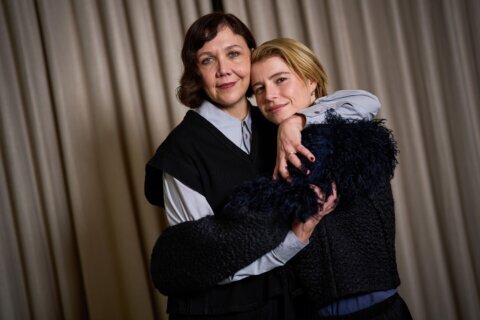WASHINGTON — Six years before Pinterest got its start, Grace Bonney launched a website that captivated the hearts (and imaginations) of design enthusiasts — about 2 million of them a day, to be exact.
Design*Sponge, which was once dubbed the “Martha Stewart Living for millennials,” tackles topics ranging from interior design and DIY, to travel and entertaining. But in recent years, its focus has been less on hand-loomed rugs and pastel prints, and more on the people who make them — especially women.
“Initially I was drawn to design because I cared so much about the objects, and then it became really clear that the people and the stories behind those objects were far more interesting than the objects would ever be,” said Bonney, who in 2008 started a cross-country series, called Biz Ladies, to connect with women running creative businesses.
That series became the basis for her 2016 New York Times best-selling book, “In the Company of Women,” in which Bonney profiles 100 female entrepreneurs.
“I felt like there were a lot of great business books, but not books that represented the full depth of the community, and I wanted to see women of color, women who are differently abled, LGBTQ women — it was a great chance to show people how many different versions of businesses and bosses that there are,” Bonney said.
On March 9, Bonney was in D.C. to lead a panel discussion at Ann Taylor in Dupont Circle as part of the clothing brand’s This is Our Time campaign. Before the conversation started, WTOP sat down with Bonney to ask her about her own successes, failures and experiences running a business.
On taking risks
Bonney doesn’t have a “biggest risk” story. She says she takes risks all the time and staying true to her brand is something she has to fight for every day.
“I think the biggest risk we take every day is staying small. It’s tempting to take venture capital money or sell to a larger company when you’re in online media because the advertising market behind blogs and websites has totally tanked over the past few years,” Bonney said.
“I feel so strongly that it’s important to maintain editorial control and integrity at all costs, and so that means usually lower costs for me. But I’m really proud that we stay small and even though that does put us at risk because we don’t have a lot of money behind us, I feel really good about what we put out every day. If you can go to sleep feeling like you’ve done good work at the end of the day, that is worth way more than a big salary to me.”
Advice for starting your own business
It’s not glamorous and it might not be what aspiring entrepreneurs want to hear, but Bonney says one of the best things you can do before working for yourself is to work for someone else.
“Because you get to learn and make mistakes on somebody else’s dime,” Bonney said.
“It’s so tempting to want to start your business right away, but I can speak from experience where I made all of the mistakes that, yes were great life lessons, but were very financially costly. I wish I had learned from someone else first to understand maybe don’t sink all your money into rent first, wait and invest in your team or invest in infrastructure first.”
On maintaining the momentum of International Women’s Day
For those looking to keep the momentum of International Women’s Day moving forward, Bonney said plug into a community of strong female business owners, no matter where you’re located.
“It’s not a once a year event: It’s an everyday event, it’s an every hour event. It’s about finding these women, supporting them, going to their businesses, hiring them, suggesting them for jobs and really making that a daily part of what you do,” Bonney said.
“If you’ve got an Instagram feed or a Facebook page, promote these people. Talk about businesses that are run by women that you admire. In turn, they will support other women and so on and so on, and that’s how it becomes a part of our everyday lives.”
On why more women are becoming breadmakers and breadwinners
Whether it’s working a letterpress or a French press, the creative community has seen a boom in small business owners, many of whom are women.
Bonney has thought a lot about why more women are leading creative, lifestyle-based businesses, and said she thinks it has to do with the flexibility the industry offers.
“Going into corporate America — going even into a traditional restaurant job — it’s very difficult if you’re a working mother. And I think so many women have to figure out life and work and kids, and that’s really difficult to do if you’re part of a corporate structure that doesn’t offer paid maternity leave or doesn’t offer flexible hours,” Bonney said.
“So starting your own business, while it means less security, it does offer you greater flexibility, and so I find a lot of women, especially young new moms are like, ‘I can save on child care, I can be home, I can work around their needs,’ and that’s a really important thing for a lot of women.”






